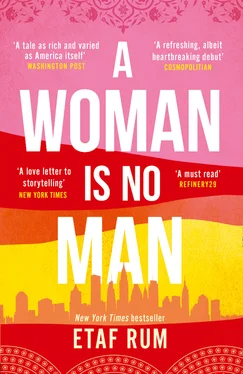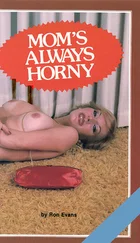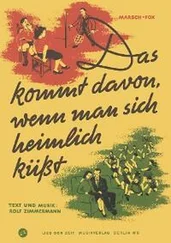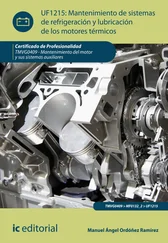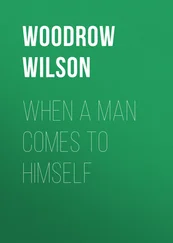ETAF RUMwas born and raised in Brooklyn, New York, by Palestinian immigrants. She teaches college English literature in North Carolina, where she lives with her two children. Etaf also runs the Instagram account @booksandbeans. A Woman Is No Man is her first novel.
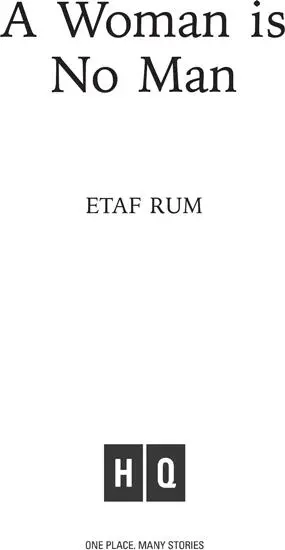
Copyright

An imprint of HarperCollins Publishers Ltd
1 London Bridge Street
London SE1 9GF
First published in Great Britain by HQ in 2019
Copyright © Etaf Rum 2019
Etaf Rum asserts the moral right to be identified as the author of this work.
A catalogue record for this book is available from the British Library.
This novel is entirely a work of fiction. The names, characters and incidents portrayed in it are the work of the author’s imagination. Any resemblance to actual persons, living or dead, events or localities is entirely coincidental.
All rights reserved under International and Pan-American Copyright Conventions. By payment of the required fees, you have been granted the non-exclusive, non-transferable right to access and read the text of this e-book on-screen. No part of this text may be reproduced, transmitted, downloaded, decompiled, reverse engineered, or stored in or introduced into any information storage and retrieval system, in any form or by any means, whether electronic or mechanical, now known or hereinafter invented, without the express written permission of HarperCollins.
Ebook Edition © March 2019 ISBN: 9780008341077
To Reyann and Isah,
nur hayati
There is no greater agony than bearing an untold story inside you.
Maya Angelou
I write for those women who do not speak, for those who do not have a voice because they were so terrified, because we are taught to respect fear more than ourselves. We’ve been taught that silence would save us, but it won’t.
Audre Lorde
Cover
About the Author
Title Page
Copyright
Dedication
Epigraph
Isra
Part I
Deya
Isra
Deya
Isra
Deya
Isra
Deya
Isra
Part II
Fareeda
Deya
Isra
Deya
Fareeda
Isra
Deya
Isra
Deya
Isra
Deya
Isra
Deya
Fareeda
Isra
Deya
Isra
Fareeda
Deya
Fareeda
Deya
Fareeda
Part III
Deya
Isra
Deya
Isra
Fareeda
Isra
Fareeda
Deya
Fareeda
Isra
Deya
Isra
Deya
Fareeda
Isra
Deya
Isra
Deya
Isra
Deya
Isra
Acknowledgments
About the Publisher
I was born without a voice, one cold, overcast day in Brooklyn, New York. No one ever spoke of my condition. I did not know I was mute until years later, when I opened my mouth to ask for what I wanted and realized no one could hear me. Where I come from, voicelessness is the condition of my gender, as normal as the bosoms on a woman’s chest, as necessary as the next generation growing inside her belly. But we will never tell you this, of course. Where I come from, we’ve learned to conceal our condition. We’ve been taught to silence ourselves, that our silence will save us. It is only now, many years later, that I know this to be false. Only now, as I write this story, do I feel my voice coming.
You’ve never heard this story before. No matter how many books you’ve read, how many tales you know, believe me: no one has ever told you a story like this one. Where I come from, we keep these stories to ourselves. To tell them to the outside world is unheard of, dangerous, the ultimate shame.
But you have seen us. Take a walk in New York City on a sunny afternoon. Walk down the length of Manhattan until the streets become curved and tangled as they are in the Old World. Go east, over the Brooklyn Bridge, Manhattan’s skyline thinning behind you. There will be a heavy traffic jam on the other side. Hail a yellow cab and ride it down Flatbush Avenue, that central artery of south Brooklyn. You’ll go south on Third Avenue, where the buildings are smaller—only three, four stories high, with old faces. The Verrazano-Narrows Bridge hovers on the horizon like a giant gull, wings spread, the sweeping view of the Manhattan skyline a distant mirage. Head south for a while, past the warehouses refurbished into chic cafés and trendy oyster bars, and the small family-owned hardware stores that have been there for generations. When the American cafés start to thin, replaced by signs in foreign tongues, you’ll know you’re getting close. Cross east two blocks to Fifth Avenue. There you will find Bay Ridge. Our three-square-mile neighborhood is the melting pot of Brooklyn. On our streets you’ll find Latinos, Middle Easterners, Italians, Russians, Greeks, and Asians, all speaking their native tongues, keeping their traditions and cultures alive. Murals and graffiti cover the buildings. Colorful flags hang from windows and balconies. The sweet smell of churros, shish kebabs, and potpourri fills the air—a stew of humanity converging. Get out at the corner of Seventy-Second and Fifth Avenue, where you’ll find yourself surrounded by bakeries, hookah bars, and halal meat markets. Walk down the tree-lined sidewalk of Seventy-Second Street until you reach an old row house no different from the others—faded red brick, a dusty brown door, number 545. This is where our family lives.
But our story does not begin in Bay Ridge, not really. To get there, first we must turn back the pages to before I found my voice, before I was even born. We are not yet in the house on Seventy-Second Street, not yet in Brooklyn, not yet in America. We have yet to board the plane that will carry us from the Middle East to this new world, have yet to soar over the Atlantic, have yet to even know that one day we will. The year is 1990, and we are in Palestine. This is the beginning.
Isra

BIRZEIT, PALESTINE
Spring 1990
For most of her seventeen years Isra Hadid cooked dinner with her mother daily, rolling grape leaves on warm afternoons, or stuffing spaghetti squash, or simmering pots of lentil soup when the air became crisp and the vineyards outside their home went empty. In the kitchen she and Mama would huddle against the stove as if sharing a secret, steam swirling around them, until the sunset cast a sliver of orange through the window. Looking out, the Hadids had a mountaintop view of the countryside—hillsides covered with red-tiled rooftops and olive trees, bright and thick and wild. Isra always cracked the window open because she loved the smell of figs and almonds in the morning, and at night, the rustling sounds of the cemeteries down the hill.
It was late, and the call for maghrib prayer would soon come, bringing an end to the cooking. Isra and Mama would withdraw to the bathroom, rolling up the sleeves of their house gowns, washing the dull red sauce off their fingertips. Isra had been praying since she was seven years old, kneeling beside Mama five times a day between sunrise and sunset. Lately she had begun to look forward to prayer, standing together with Mama, shoulders joined, feet slightly grazing, the only time Isra ever felt human touch. She heard the thick sound of the adhan calling them for prayer.
Читать дальше
